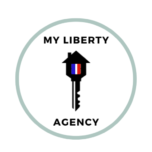10 Essential Steps / expatriation in australia

1. Getting the Right Visa
Australia offers a wide range of visas, each with specific criteria depending on your situation. If you’re moving for work, you will likely need to apply for a work visa, such as the Temporary Skill Shortage Visa (subclass 482) or a Permanent Residency Visa for in-demand occupations (subclass 189). If you’re coming for study, the Student Visa (subclass 500) is what you need, with restrictions on working hours during your studies. Additionally, for investments or business projects, there are special visas available. It is crucial to fully understand the eligibility criteria to avoid complications and allow enough time for your application process, as obtaining a visa can take several weeks or even months. Don’t underestimate the importance of these administrative procedures, as they will determine the legality of your stay in Australia.
2. Budget and Cost of Living
Before you leave, it is essential to prepare financially, as the cost of living in Australia, especially in major cities like Sydney, Melbourne, and Brisbane, can be high. Rent is particularly expensive, especially in central areas or those close to transportation. Apart from accommodation, you should also consider the costs of groceries, services like electricity, water, internet, and transportation fees. For instance, public transport costs vary between cities, and monthly passes can be a significant expense. It is crucial to estimate your monthly expenses and plan your budget for the first few months to avoid being caught off guard.
3. Housing and Settling In
Finding accommodation in Australia, especially remotely, can be a real challenge. Many people choose to work with real estate agents or specialised services to make their search easier. My Liberty Agency, for example, assists you at every step of the process, from finding housing within your budget to signing your lease, offering support to understand the legal and administrative aspects of renting (https://mylibertyagency.com/our-services/). In addition to finding a place to live, it is important to consider settling-in tasks, such as setting up services like electricity, water, and internet, to ensure a stress-free and smooth move-in experience.
4. Employment and Recognition of Qualifications
The Australian job market is very competitive, and it is important to check whether your profession is in demand before you leave. There are lists of skills shortages, and if your field is on these lists, you’ll have a better chance of securing a job. Furthermore, the recognition of foreign qualifications may require an assessment by official bodies, such as the Australian Qualifications Framework (AQF) or other professional regulatory authorities. Certain professions, like medicine or engineering, may require additional certifications or equivalencies to legally practice in Australia. Therefore, make sure you prepare these steps in advance to avoid any surprises once you arrive.
5. Healthcare System and Health Insurance
Australia has a public healthcare system called Medicare, which allows certain individuals, particularly those with specific visas, to access medical care at a lower cost. However, not all visas grant access to this system, and you may need to take out private health insurance. This additional coverage is often recommended because it gives you access to higher-quality and faster healthcare services. Therefore, check whether your visa allows you to use Medicare or if you need to purchase private health insurance before you leave, to avoid any surprises if health issues arise.
6. Opening a Bank Account
Opening an Australian bank account is a relatively simple process, but essential for managing your finances once you arrive. Many banks offer the option to open an account remotely before your arrival. This will allow you to receive your salary directly and manage your day-to-day finances, including paying rent, groceries, and subscriptions. It is also possible to open an account with online banking services, which can be very convenient for managing your finances remotely without needing to go to the bank.
7. Transportation and Driver’s License
Australia’s transport system is quite varied. In major cities, you’ll find well-developed bus, train, and tram networks. However, if you plan to drive, it’s important to check the validity of your French driver’s license. In many cases, you can drive with your French license for a certain period, typically 3 to 6 months, before needing to obtain an Australian driver’s license. The process for getting an Australian license varies from state to state, but it typically involves both a theoretical and practical test. Be sure to check the local rules before getting behind the wheel.
8. Culture and Integration
Australia is a multicultural and welcoming country, with residents known for their friendliness and open-mindedness. However, integration may be challenging at first, especially if English is not your native language. To facilitate your adjustment, it’s advisable to immerse yourself in the local culture by learning customs and improving your English. Participating in social activities, like community events or outings, is also a great way to meet people and integrate into social groups. Practicing English, especially at work or school, will also help you adapt better to everyday life in Australia.
9. Taxation and Taxes
The Australian tax system is different from France’s. If you work in Australia, you will be subject to income tax, but the tax rate varies depending on your income. It is essential to research your tax obligations, including possible deductions, income reporting, and social contributions. You will also need to check if you are entitled to a tax refund in France if you have income from your home country. Australia has double taxation agreements with several countries, which can make your tax management easier. Consulting an Australian tax expert could be a good idea to avoid any mistakes.
10. Network and French-Speaking Community
Joining an expat community or support groups can greatly help with your adaptation to life in Australia. Many cities like Sydney, Melbourne, and Brisbane have active French-speaking communities where you can meet other French nationals and get practical advice about daily life. These groups also organise events to help you better understand the local culture and make new friends. Joining a local association can also offer professional opportunities, particularly if you are looking for a job in sectors that favour international mobility. We recommend visiting https://www.vivreauqueensland.org/. to connect with fellow French nationals and get helpful tips for settling in Queensland.
By taking the time to prepare your expatriation carefully, you maximise your chances of a successful relocation to Australia, and you can fully enjoy this exciting and enriching experience.



